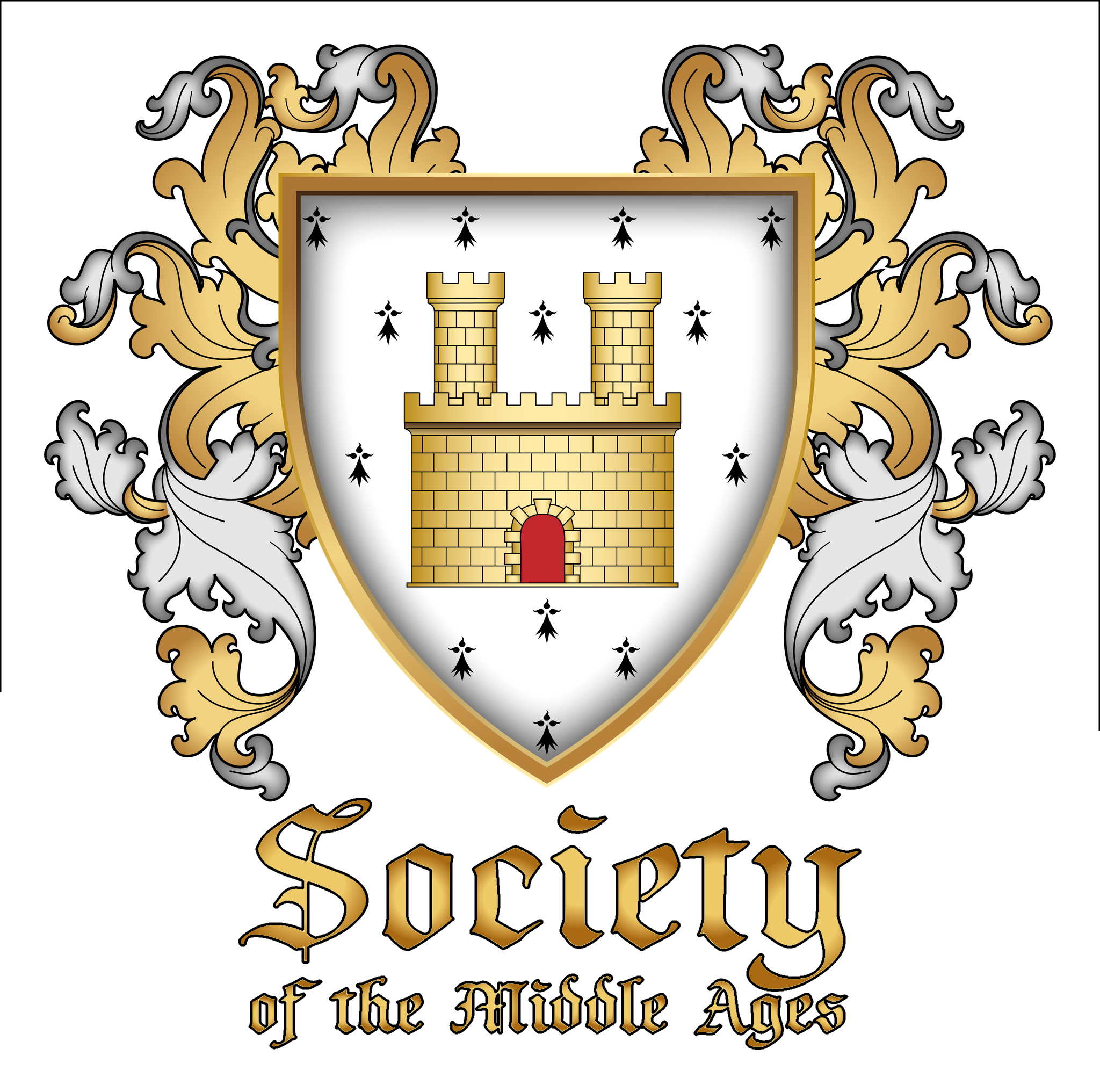Letter of Registrations and Returns
Society of the Middle Ages, Inc.
Office of the Muskatour King of Arms
September 2022
Greetings from the Muskatour office.
After last month’s letter, this month’s seems almost anti-climactic. We really don’t have anything earth-shattering to talk about. It’s not a milestone month. We didn’t even have any good arguments during the decision meeting.
That said, one of the questions in this month’s meeting was on spelling of names. It is a common assertion that spelling didn’t matter historically, and there are many anecdotal examples of misspelled names in history. However, history tells us that any culture that had an alphabet pretty much cared about spelling. What we in the modern world call misspellings probably come from two factors. The first is dialectical. Anyone who has studied a language in school knows that the school teaches the “perfect” version of the language. For example, I studied German and my school taught hoch-Deutsch or high German – a dialect spoken primarily in the north. During my time in Germany, I was exposed to Prussian, Hessian, and Bayernisch – all of which have different pronunciations from their hoch-Deutsch counterparts – e.g., what might be a ck sound in high German is a guttural g sound in Bavarian. Throughout history, when these dialectical differences are written, they are recorded using the letters of the alphabet that best represented the sound… in that dialect. The same happens with changes in dialect within the same region over time. As the decades pass, name pronunciation may change slightly, and the recording of it will change as well. Thus, we have spelling variations based on dialect differences. The second factor is Latinization… the conversion of non-Latin names into a form using the Latin alphabet… a transliteration. This is also largely sound-based, but someone less familiar with the origin language is transliterating the sounds into Latin letters. We see this with Cyrillic, Greek, Hebrew, Arabic, and any number of African and Asian languages. For example, the former ruler of Libya had his name appear in the news at various times as Ghadaffi, Qadafi, Q’daffi, and Gedofi. This is compounded when the origin alphabet has multiple characters that are formed by the same letter combination in Latin. For example, þ and ð are both replaced with a ‘th’ in Latin. However, þ is a soft th (like in leather) while ð is a hard th (like in panther.) As we go back and forth between multiple languages, how each person pronounces the transliteration affects how the next person writes it down… like a giant game of telephone.
Anyway, that’s a long way of saying yes – when it comes to names, spelling matters (so does grammar, by the way.)
This month we have no returns and two pends. See below for the details.
- Æþelric of Berwick – New Name, New Arms
Per fess azure and gules, a feather bendwise inverted argent. - Ástríðr Nilsdóttir – New Name
- Bors of Lothian – Legacy Name
- Caradoc ap Cadwgan – New Name, New Arms
Azure, a sword between two dolphins haurient respectant argent - Daniel mac Thámhais – New Name (See Pended for Arms)
- Máire ingen Fheirgil – New Arms
Per pale argent and vert, two trees eradicated and counterchanged - Svena Johansdottir – New Name
Submitted as Æðelric of Berwick, the documentation showed Æþelric spelled with a thorn rather than an ath. The client agreed to the change.
The arms were submitted as legacy arms, however the blazon from the legacy organization was quill pen. Since the emblazon was of a feather rather than a quill pen, the client agreed to the change of blazon which removed the legacy designation.
RETURNS
None
